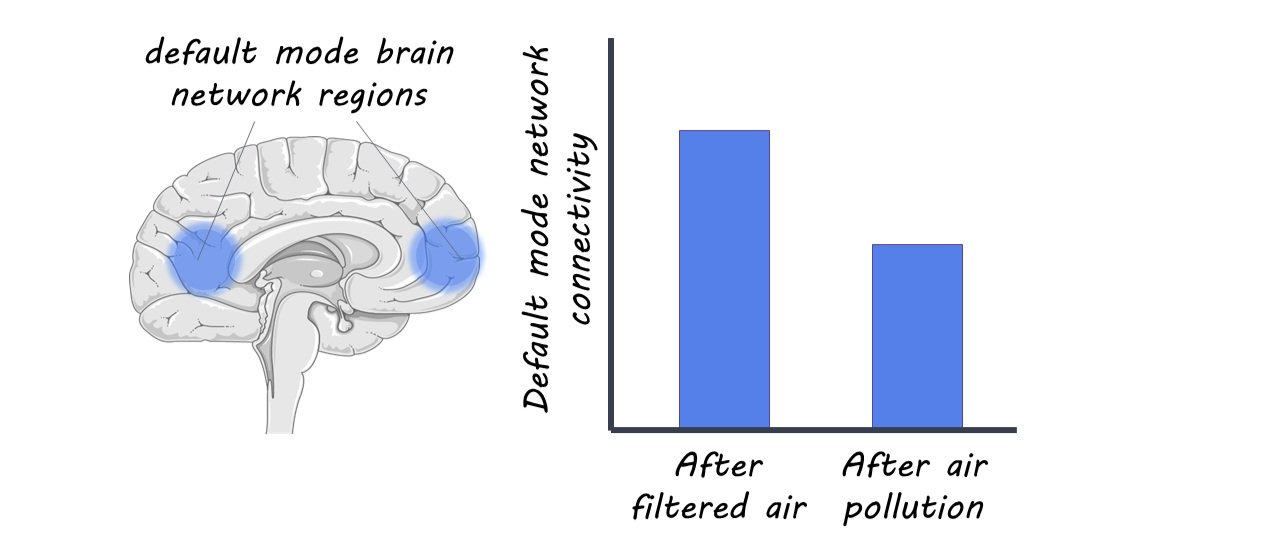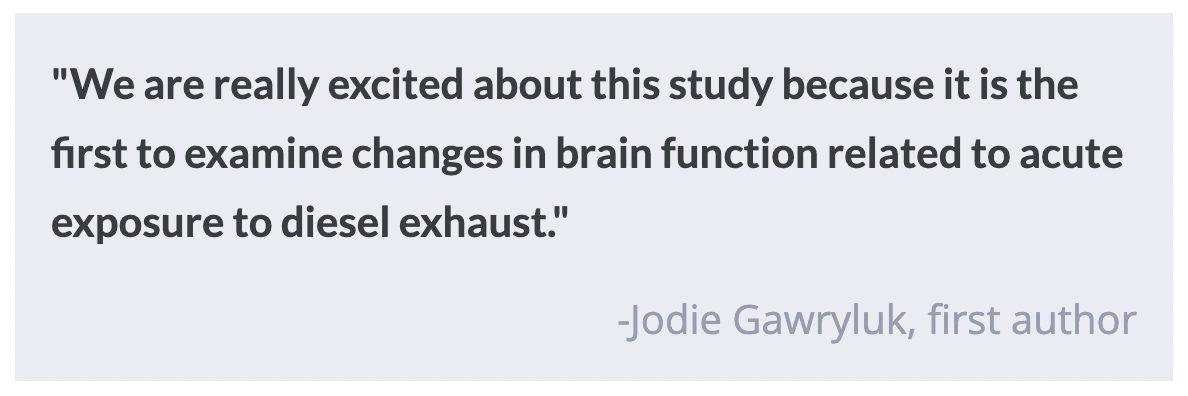The Impact of Air Pollution on the Brain
Post by Christopher Chen
The takeaway
Exposure to air pollution has been linked to negative effects on cardiovascular and respiratory health, but its impact on brain function remains unclear. Scientists discovered that short-term exposure to air pollution in controlled conditions negatively affected fMRI measurements of brain connectivity, suggesting that air pollution may be harming our brains.
What's the science?
The harmful effects of traffic-related air pollution are well-documented, with numerous studies showing how exposure to air pollution harms cardiovascular and respiratory health. Further, researchers have linked air pollution to negative outcomes on brain health, with some reports suggesting that air pollution particles transmitted to the brain via the olfactory bulb may enhance neuroinflammation. However, the effects of traffic-related air pollution on the brain remain relatively unexplored, at least under controlled conditions. A recent article in Environmental Health investigated the effects of exposure to traffic-related air pollution on the brain and cognitive function.
How did they do it?
Twenty-five healthy adults were selected and screened for inclusion in this study. They were then chosen at random to be initially exposed to either: diluted diesel exhaust (DE) or filtered air (FA) under double-blind conditions at the Air Pollution Exposure Lab at the University of British Columbia. Immediately before exposure, researchers measured brain activity using fMRI. Following initial fMRI measurement the two-hour exposure began with the participants lightly cycling on a stationary bike for fifteen minutes in order to generate a representative level of activity. Immediately following the two-hour exposure, brain activity was again measured using fMRI. Two weeks later, participants first exposed to DE were exposed to FA while those first exposed to FA were exposed to DE.
Following the conclusion of the experimental portion of the study, investigators analyzed fMRI data for changes in the blood oxygen level-dependent (BOLD) signal following DE and FA exposure. Specifically, they focused on brain regions linked to the default mode network, a well-studied functional brain network involved in higher-level thinking skills and memory that includes regions that are active together during wakeful rest.
What did they find?
The fMRI data revealed several key differences in brain activity following exposure to DE and FA. The fMRI data also showed that under control conditions (exposure to FA), subjects saw a significant increase post-exposure in brain activity in the right middle temporal gyrus and occipital fusiform gyrus, brain regions known to be linked to the default mode network. This increase was not present after DE exposure. Furthermore, when comparing widespread changes in brain connectivity, researchers showed that brain connectivity in FA conditions was significantly enhanced compared to DE conditions. In other words, there was decreased brain connectivity after DE exposure compared to after FA exposure, suggesting that the brain isn’t functioning as well after exposure to diesel air.
What's the impact?
Investigators found that traffic-related air pollution decreased brain connectivity compared to exposure to clean air. Overall, these findings suggest that there are negative effects of short-term exposure to air pollution on the brain. Future studies are needed to examine pollution exposures over longer durations to better understand the long-term impact.


